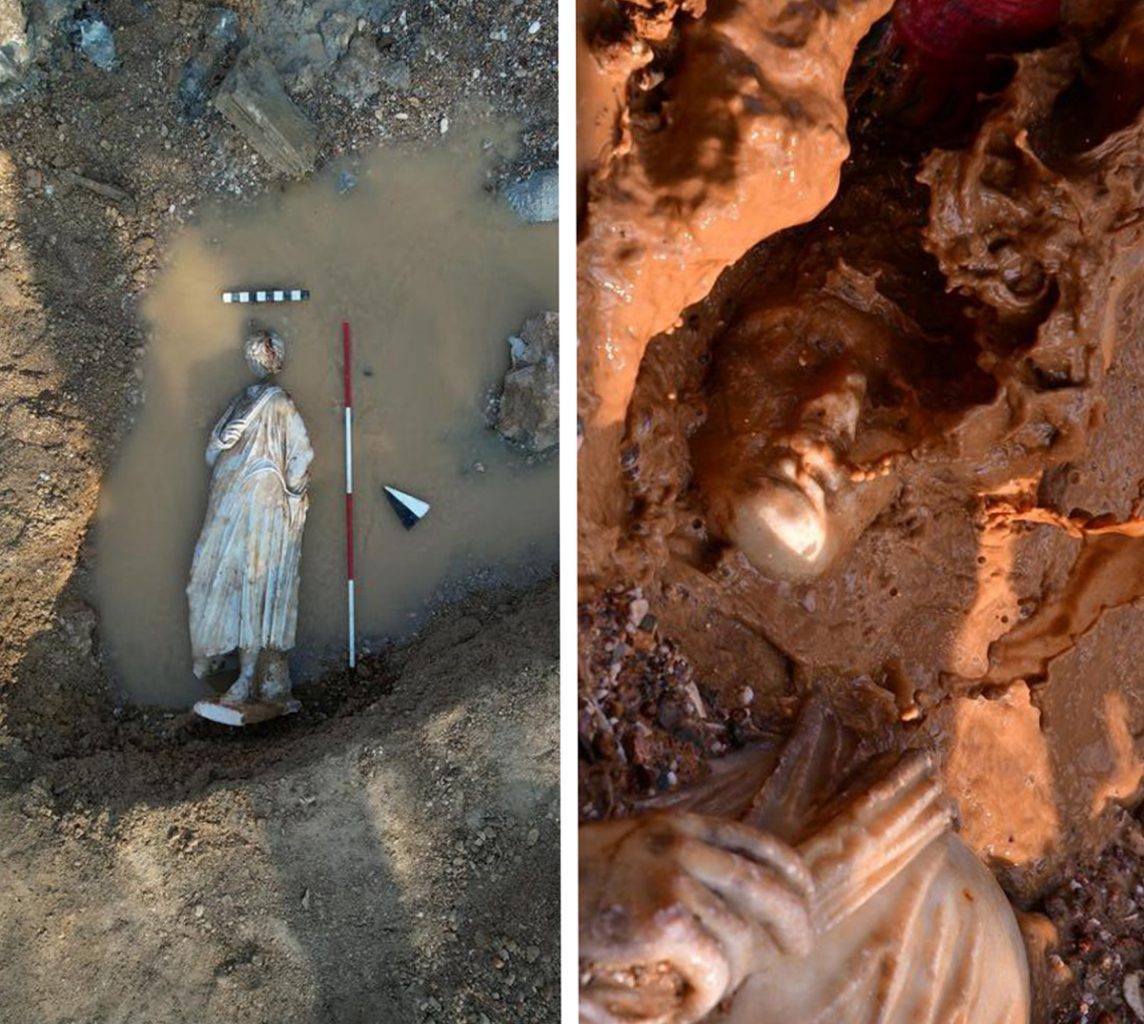ARCHAEOLOGISTS FROM THE KÜTAHYA DUMLUPINAR UNIVERSITY HAVE UNCOVERED THE HEADS OF SEVERAL GREEK GODS DURING EXCAVATIONS AT ANCIENT AIZANOI, LOCATED IN PRESENT-DAY ÇAVDARHISAR, TURKEY.
Aizanoi was founded as a Phrygian city on the western end of the Phrygia kingdom. During the Hellenistic Period, the city alternated between the hegemonies of the Pergamon and Bithynia Kingdoms, and then came under Roman control in 133 BC.
Its monumental buildings date from the early Empire to the 3rd century AD, a period when Aizanoi was an important political and economic centre within the Roman province of Phrygia Pacatiana.
After the 7th century AD, Aezani fell into decline, with some of the buildings on the temple hill being converted during the Seljuk period (AD 1040 and 1157) into a citadel by Çavdar Tatars (which the recent settlement of Çavdarhisar is named).
Archaeologists from Kütahya Dumlupınar University were excavating within the vicinity of the Roman bridges that cross the Penkalas stream, a tributary of the river Rindakos.
The researchers found stone heads depicting the Greek gods: Eros (the god of love and sex), Dionysus (the god of the grape-harvest, winemaking, orchards and fruit, vegetation, fertility, insanity, ritual madness, religious ecstasy, festivity, and theatre), the demigod, Heracles (a divine hero in Greek mythology and the son of Zeus and Alcmene), and several other gods from the Greek pantheon.

The team also uncovered a near-complete statue, missing only half of its pedestal and one foot. The statue measures over 2 metres in height and depicts a male figure, although the team are yet to announce if it represents an important figure from Aizanoi or a legendary hero or God.
Previous excavations in 2021 also found stone heads within the vicinity of the latest discovery, where researchers unearthed the head of Aphrodite (the goddess of love), and Dionysus, and in 2020 archaeologists found a headless statue of Heracles, although the latest stone head of Heracles doesn’t match the previous statue, suggesting that another statue is yet to be discovered.
Commenting on the excavations, Prof. Dr. Gökhan Coşkun from the Kütahya Dumlupınar University said: “During the excavation season of 2022, we uncovered many blocks belonging to the bridge with the works we carried out on the 3rd bridge debris. In addition, we came across a sundial and many pieces of marble sculpture.”